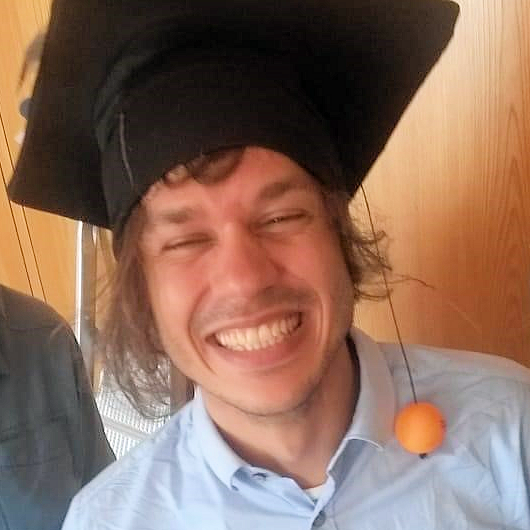
On 15.09.2020 Florian Schneider defended his PhD thesis on "Root-restricting layers in German Agricultural soils - Extent, cause and management strategies" at the University of Bonn with distinction. He wrote the dissertation as part of the BonaRes project SOIL3. The aim of his thesis was to investigate the subsoil below 30 cm depth at the scale of Germany and examine how compacted soil layers and other soil properties affected root growth and crop productivity.
The work started with a meta-analysis on how subsoil melioration, for example by deep plowing, affects agricultural yields. The global dataset showed variable crop responses to subsoil melioration: under dry climates, in which subsoils play a crucial role for water storage crop yield responses to deep tillage were positive and the highest. However, there were also site conditions which favored yield losses after deep tillage. Soil science knowledge is thus very important to assess the chances of success of these measures.
In the other parts of the dissertation, Florian Schneider evaluated subsoil properties based on data from the first German Agriculture Soil Inventory. He has shown how widespread subsoil compaction and other causes for restricted root growth are. Only a minor fraction of the observed subsoil compaction was traffic induced. In many soils, root growth into the subsoil was naturally impeded. This also has implications for plant growth under changing climate conditions with more frequent drought events. Florian Schneider also examined the current popularity of subsoil melioration measures in Germany. Deep tillage is increasingly being neglected, while biological methods for subsoil melioration by means of pore-forming preceding crops gain in popularity.
Rooting depth also determines the distribution of organic matter in soil profiles. Florian Schneider analyzed this hypothesis in an extensive data evaluation. In doing so, as in other parts of his work, he has very successfully applied new methods of machine learning. Self-learning algorithms have shown that the depth distribution of carbon in German agricultural soils is determined not only by roots, but in many soils also by organic matter accumulated with sedimentation. Using 13C isotopes, Florian Schneider was also able to show that subsoil melioration can be an option for carbon sequestration.

![[Translate to English:] [Translate to English:]](/media/_processed_/6/4/csm_titel_CO2Kampagne8_afeea2273e.png)
![[Translate to English:] [Translate to English:]](/media/_processed_/4/1/csm_titel_93px_CO2Kampagne8_9b0f3354d4.png)





